Long COVID-19 amplifies chronic health care challenges in rural America
After more than a week of high fever and flu-like symptoms brought on by COVID-19, Steve Smith, 62, thought he’d turned a corner.
The retired police officer and former emergency medical technician lives in rural Appalachia, in Church Hill, Tennessee. He fell ill soon after attending a small funeral for his best friend’s mother last fall.
As November turned into December, he still felt poorly. He couldn’t walk through his house without losing his breath, his heart rate was elevated and he had brain fog.
Like many people with lingering COVID-19 symptoms who live in pockets of the country with multiple barriers to health care, Smith’s options were limited. While medical centers across the U.S. have opened clinics specifically for long-haulers, access is far from uniform. Most are in urban areas and many have waiting lists, strict eligibly requirements and few slots for uninsured patients.
CHANGED BY COVID
Day three of a weeklong USA TODAY Network series exploring long-haul COVID-19, the people who’ve suffered and the experts trying to help them. If you don’t want to miss future stories in this series, sign up for our COVID-19 newsletter here.
New clinics seek answers: What is the proper treatment for long COVID?
Stay connected: Subscribe to Coronavirus Watch, your daily update on all things COVID-19 in the USA.
In theory, health care is not supposed to discriminate based on geography. In practice, it does – a fact that the explosion of COVID-19 across rural America underscored.
Hospital closures make matters worse. In all, 138 rural hospitals have closed in the past decade, according to data from the Cecil G. Sheps Center for Health Services Research at the University at North Carolina-Chapel Hill. Last year, 19 closed – the most in a single year since the program started tracking in 2005.
“You put these three factors together: more (coronavirus) spread, a higher-risk population, and less access to specialty care – you get a complex long-term challenge in these communities,” said Michael Meit, the director of research and programs at the Center for Rural Health Research at East Tennessee State University. “This is going to have a generational impact.”
Steve Smith got lucky.
His daughter reached out to a family friend, Teresa Tyson, who runs The Health Wagon, a free, nonprofit clinic that serves 16 counties spanning 1,715 square miles of mountainous south-central Appalachia. In late 2020, the clinic began seeing three or four long-haul COVID-19 patients a week, and Smith was one of them.
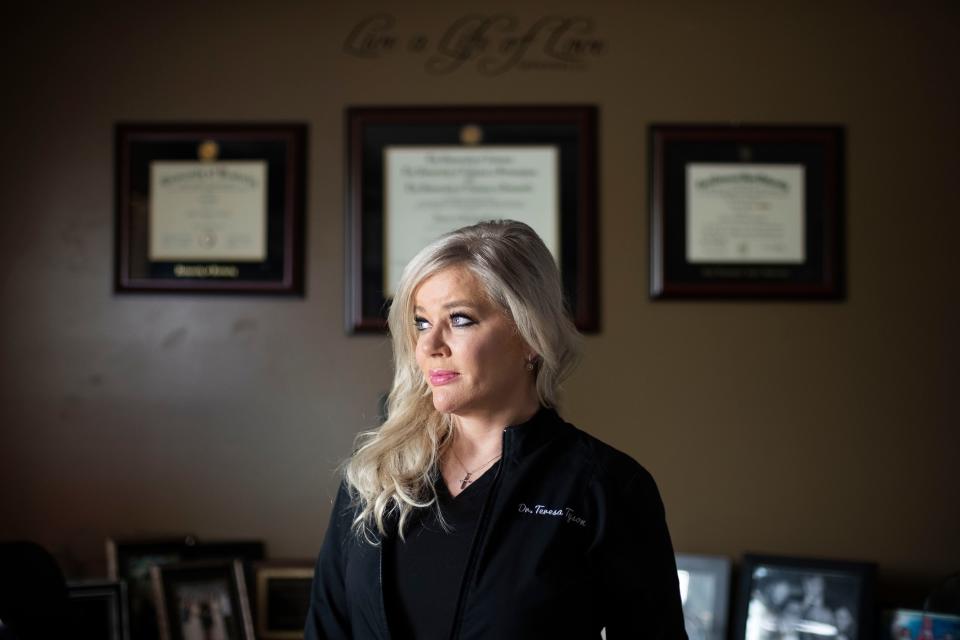
A CT scan revealed his lungs and extremities were full of blood clots – a condition seen in some people with long-COVID-19. A saddle clot, blocking both sides of the arteries entering the lung, slowed deoxygenated blood from reaching his lungs. His heart was enlarged, trying to pump blood past the clot.
Tyson helped Smith get a much-need medication blood thinner, Eliquis, at no cost. The treatment would otherwise cost $657 a month – more than his $650 monthly fixed income.
Smith worries the blood thinners could be a particular danger to someone living alone in a remote area. “If I get in an accident or car wreck, I will bleed to death,” he said.
Dealing with COVID-19 and its secondary effects has been daunting, Tyson said. In addition to its many other services, The Health Wagon pioneered mobile monoclonal antibody treatments for COVID-19, operated mobile vaccination clinics and distributed 40,000 masks.
The region also struggled initially to get access to COVID-19 vaccines, Tyson said.
“We will be dealing with this for many years to come and probably with limited resources,” she said, “because this patient population is not a priority for the United States.”
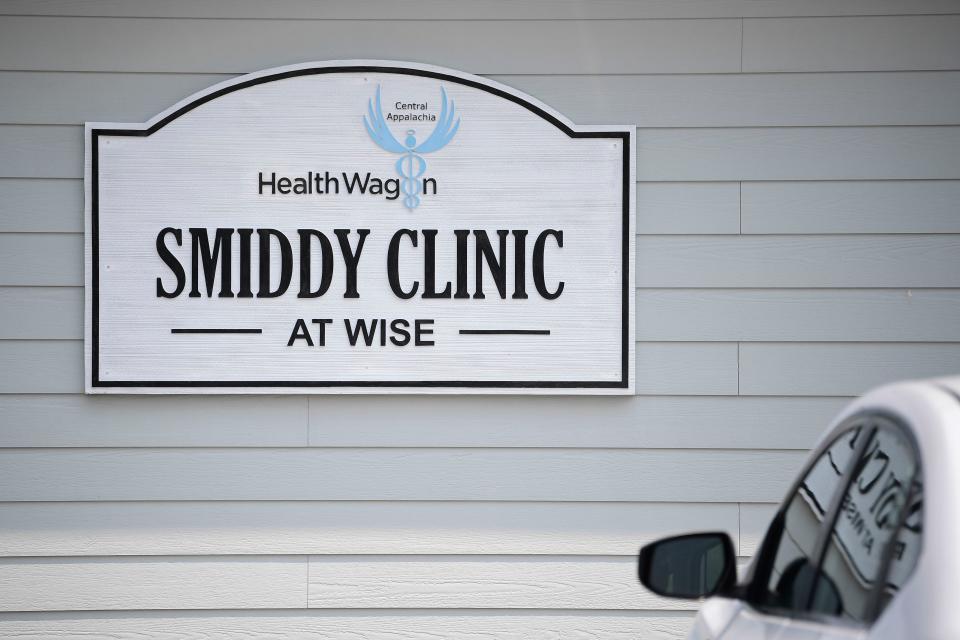
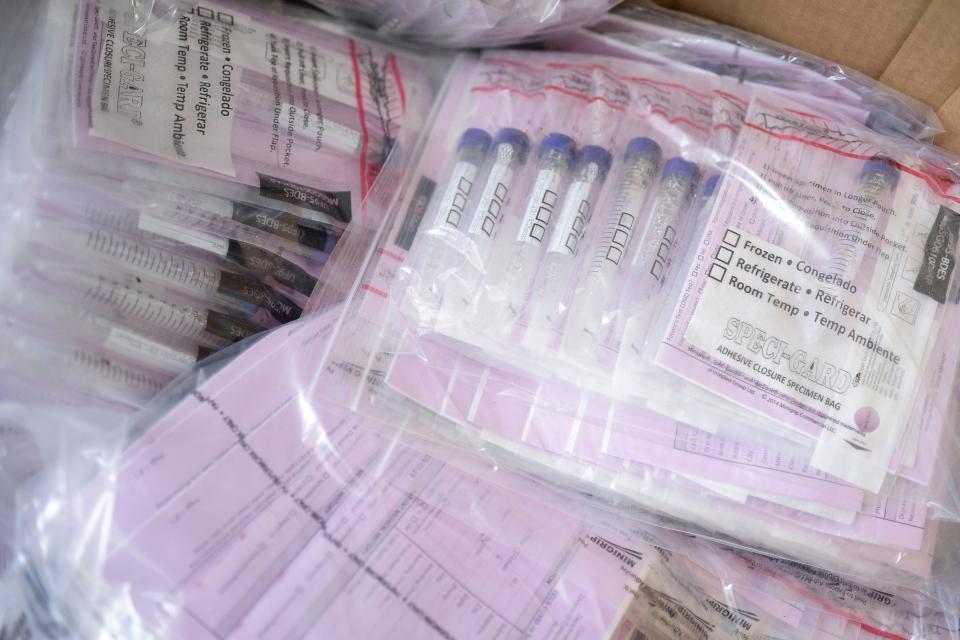
Confronting inequities
Dr. Ada Stewart, president of the American Academy of Family Physicians and a physician at Cooperative Health in Columbia, South Carolina, is concerned that the marginalized communities of color in the rural areas she serves will be unable to access specialists to help with long-term COVID-19.
Patients who have tested positive in the past 18 months have complained during follow-up visits about memory loss and trouble breathing. One needs to see a pulmonologist to help with breathing problems, but he is uninsured and doesn’t have transportation, she said.
“We are going to be faced with the consequences of COVID for a long time. It is going to impact each and everyone at some level,” Stewart said. “We need to do more as far as policies are concerned to address more of these inequities, to do more as far as our Black and brown communities. We have to do so much more.”
In Hesperia, California, the St. Mary’s/High Desert Medical clinic opened to serve a diverse population, where few specialists are available. The area had minimal coronavirus testing at the onset of the pandemic, leading patients to object to the clinic’s preference that they have a positive coronavirus test to qualify for care.
After months of working from home, Socorro Chavira Solorio, 53, returned to work last November. She had been careful, wearing a mask and isolating as much as possible. But within a couple of weeks, she was extremely tired and her temperature spiked to 102.9 degrees.
She went to the emergency room at St. Mary’s Medical Center, where she was diagnosed with pneumonia in both lungs and discharged that same day with medication. Dr. Rita Miranda, with the medical system’s clinic, followed up with Solorio after hearing that her symptoms had not cleared. Two days later, Solorio was admitted to the hospital.
Solorio still sometimes has to use an oxygen tank. At times, she’s anxious and depressed. But she credits Miranda, now her primary care physician, for providing her support when she needed it most.
“A dark part of my life was when I didn’t have the energy to do much,” she said. “I didn’t want to live, I really didn’t want to live.”
Dismissed by doctors
Patients often travel across states and even state lines for care, if they have transportation.
The post-COVID-19 program at the University of Alabama at Birmingham medical center is the lone multidisciplinary care option in the state for patients with long-haul COVID-19. The center opened last fall and as of August had referred more than 1,800 long-haul COVID-19 patients to specialists within the UAB system.
Rebekah Grimes, 41, a mother of four from Sheffield, Alabama, finally was able to see a pulmonologist at the Birmingham clinic in February, seven months after contracting COVID-19. She rented a car and drove two hours south for the appointment to discuss her breathing, memory troubles and other symptoms.
The clinic offers telemedicine as an option for some patients in remote areas, but some exams have to be done in person, according to clinic pulmonologist Dr. Dhaval Raval. And while telehealth is often touted as a way to expand care to underserved populations, it has limitations, especially for people who live in areas with inadequate broadband internet coverage.
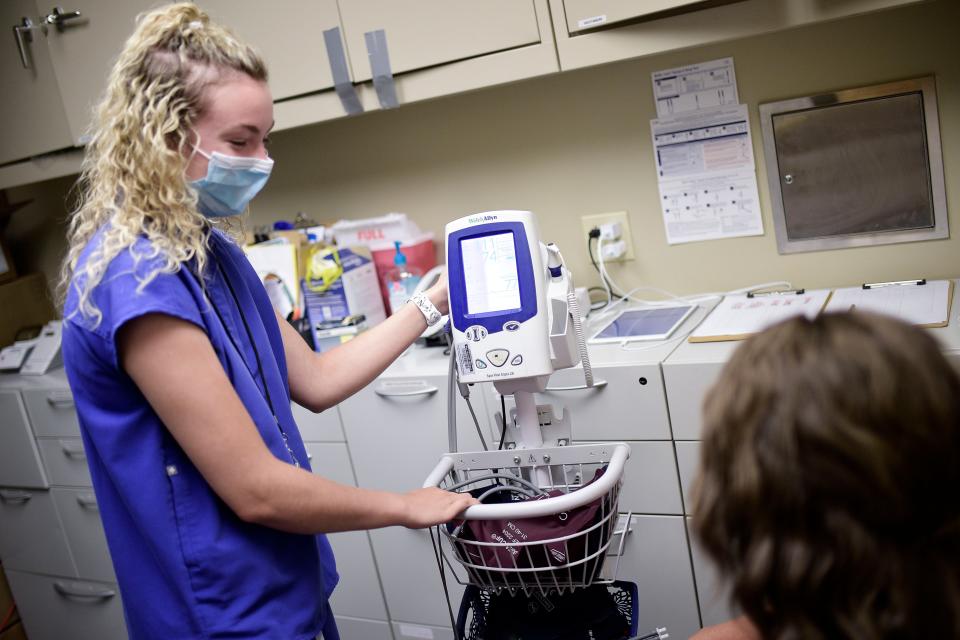

Grimes parked in a garage but got lost walking to the unfamiliar medical center. After the appointment, she got lost again trying to find her car. The trip was especially taxing because of her health problems.
“I would have driven myself to Canada pre-COVID,” she said. “Now I am not comfortable driving 15 minutes by myself because I don’t know how my body will react.”
She chokes up when she recalls being dismissed by doctors closer to home who told her “there was no way” she could still be having symptoms six weeks after getting COVID-19.
“I told the doctor … there was no way I was leaving without a chest X-ray,” she said describing a visit to a local emergency room last winter. The scan showed both of her lower lobes as white, an indication of scarring and congestion from COVID-19.
In Birmingham, Raval prescribed a regimen of breathing exercises and inhalers. Grimes’ breathing has improved although other symptoms persist.
Admetric Moore, 47, also feels privileged to have transportation. She lives in Quincy, Florida, a small city of about 8,000 people in the northern part of the state served by a freestanding emergency room run by Capital Regional Medical Center.
Moore drives 30 minutes to Tallahassee to see her primary care physician.
“For someone who is trying to get a ride to and from here to there,” she said, “it would have been a lot harder.”
Moore tested positive for the coronavirus in early January this year alongside several of her co-workers at the Quincy Police Department, where she works as a victim advocate.
More than eight months after her positive test, Moore misses the smell of rain right before a rainstorm and the smell of her favorite perfume. She struggles with her memory and has only vague recollections of what happened even a week ago. She is slowly getting back to exercising.
Her doctor has helped her with her headaches but she hasn’t seen a specialist yet for her memory issues. She hopes they will resolve on their own.
Moving to find care
Mississippi is among six states that have not opened a COVID-19 care center, according to research from SurvivorCorps, a national support network for long-haulers.
That's left Lannette Johnson, 52, who lives in Pascagoula, Mississippi, struggling to find help with symptoms that have persisted for more than a year.
It all started on Fat Tuesday. When Johnson moved to the coastal community near the Alabama border two years ago, she wanted to check “celebrating Mardi Gras in New Orleans” off her bucket list.
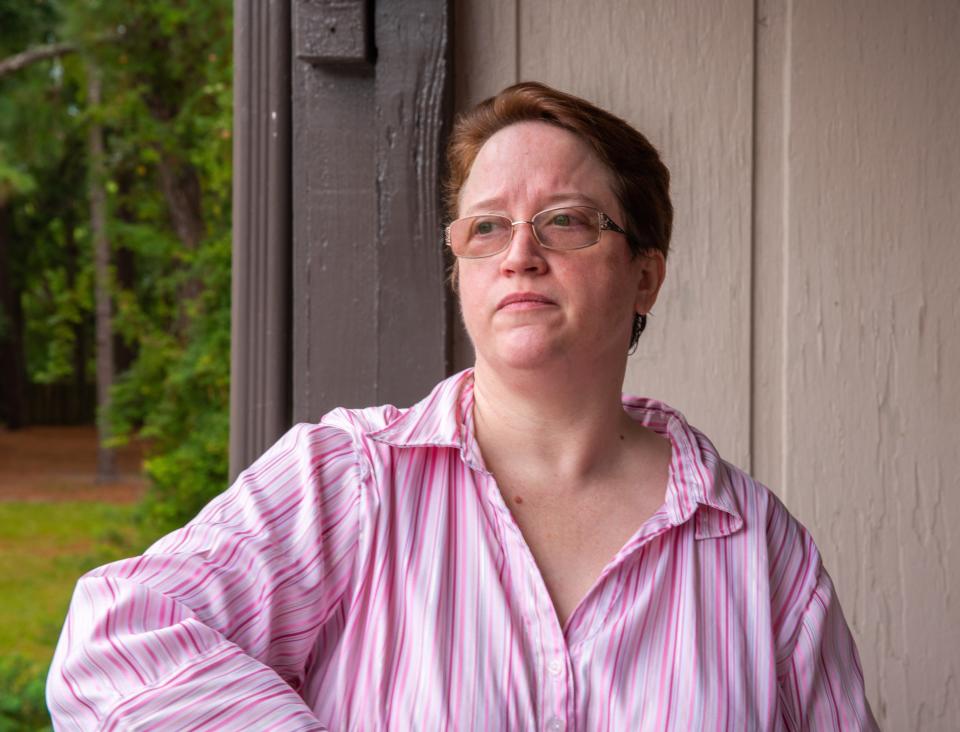
On Feb. 25, 2020, she woke up early and hopped in a car to catch the Zulu Parade, which rolls through downtown New Orleans. She danced up and down Bourbon Street, taking dozens of photos.
“It was the best time ... and ultimately the worst time,” she said. “Now I look at those photos, and I think, ‘No wonder New Orleans was a hotbed’ (for COVID-19). People were crammed in like sardines.”
Within days, Johnson developed the tell-tale symptoms: fever, a scratchy throat, a raw feeling in her lungs. She was sick for about six weeks but that early in the pandemic she was unable to get tested for the coronavirus.
“There was a hotline the state set up if you had symptoms and I kept calling and calling. My doctor didn’t believe me when I told him I had gotten sick in New Orleans,” she said.
In October, she got sick again and, this time, tested positive. The symptoms came with gripping pain, aching in her joints so intense she’d wake up screaming.
“I couldn’t speak a full sentence without feeling like I’d run a mile,” she said.
Johnson is diabetic. She also has fibromyalgia and clinical depression. Despite her medical history, she said, her doctor at a local clinic did not refer her to a specialist.
In January Johnson got vaccinated, and that lessened some of her symptoms. She’s still anxious about getting sick again, avoiding the unmasked and unvaccinated – a challenge in a state battling outbreaks and low vaccination rates.
Then there is the challenge of finding support. The stress and her symptoms have taken a toll on her mental health.
“I’ve just been dismissed for my symptoms too often,” she said.
At the end of the year, she plans to move back home to Denver, where she has friends and family and hopes to find better medical care.
This article originally appeared on USA TODAY: Long COVID-19 could amplify chronic health challenges in rural America

